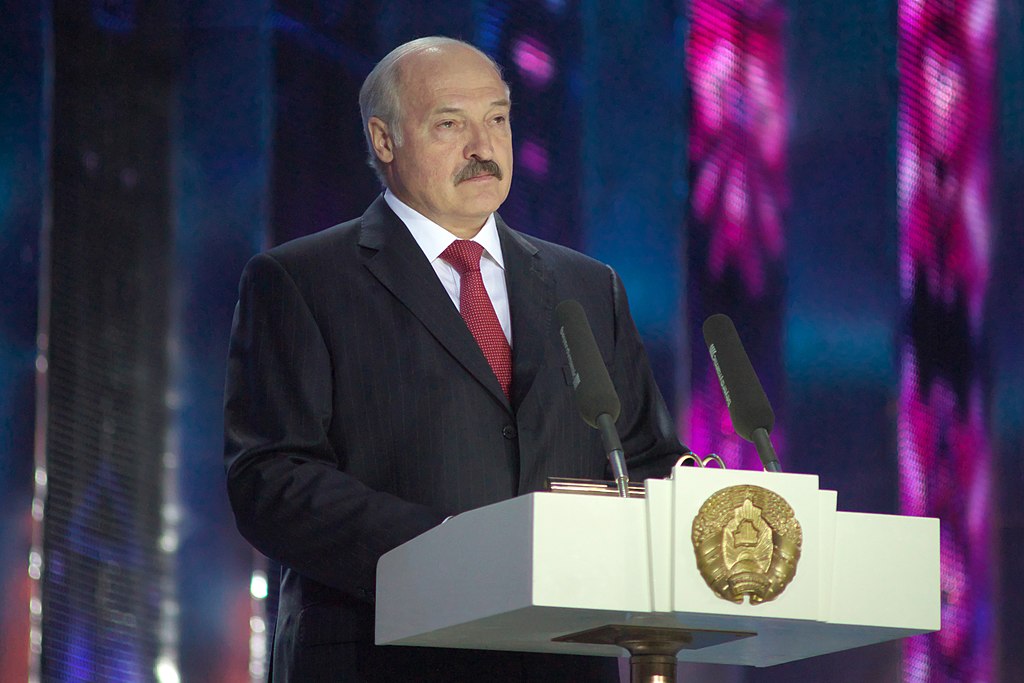Belarus’ military drills near the Ukrainian border, as well as President Alexander Lukashenko’s pro-war rhetoric, do not necessarily mean that Minsk plans to attack its neighbor any time soon. In the long-term, however, if the situation in Ukraine escalates further, it is entirely possible that Russia’s only ally in Europe will have to get directly involved in the Kremlin’s military adventure as launched on February 24.
There have been fears in Ukraine, ever since, that Belarusian troops could join Russian forces. To this day, however, Belarus has not deployed its troops to Ukraine, although Minsk continues to allow Russia to use Belarusian territory to launch missile strikes against various targets in the neighboring state.
Recent developments in Belarus indicate that the former Soviet republic is actively preparing for a potential escalation of the Ukraine war. According to reports, up to seven battalions of the Belarusian Armed Forces have been amassed on the Ukrainian border in the Brest and Gomel regions, while the Belarusian army started holding military drills in the south of the country. Belarusian troops will reportedly work out the implementation of martial law measures, as well as the fight against sabotage and reconnaissance groups.
Ukrainian officials believe that the probability of the Belarusian army’s massive participation in the Russian invasion of their country is not very high. According to Oleksiy Danilov, Secretary of the Ukrainian National Security and Defense Council, Belarus does not have enough troops to invade Ukraine. Indeed, the Belarusian army, with just 45,000 personnel, does not represent a serious threat to Ukraine. Still, even with a small number of troops Belarus could potentially open a second front for Ukraine, which means that Kyiv would have to redeploy some of its forces from the Donbass in order to protect its north-western territories.
Hypothetically, Belarusian Armed Forces could attempt to cut off Ukrainian supply lines and prevent the Ukrainian army from receiving Western weapons, although it is almost certain that such an operation would result in severe losses for the Belarusian troops. If Minsk eventually decides to invade Ukraine, its forces will undoubtedly face a tough resistance not only by the Ukrainian Armed Forces, but also by the highly motivated population of the western regions of Ukraine.
Lack of motivation to fight against Ukraine is another problem that the Belarusian army faces. Moreover, the majority of the Belarusian citizens have a rather negative attitude towards a potential invasion of Ukraine, which is why the country’s leadership hesitates to get involved in Russia’s military adventure.
Lukashenko, however, is heavily dependent on the Kremlin. His current position does not give him enough room for political maneuvers. Thus, if Moscow eventually attempts to “blackmail” him – for instance, by threatening to increase gas prices for Belarus if he refuses to “cooperate” regarding the Ukraine war – he will likely have to back down and order its army to invade certain parts of Western Ukraine.
At this point, however, such a scenario does not seem realistic. Although Lukashenko has been ramping up his militant rhetoric in recent weeks, his threats will likely be used to pin down Ukrainian units to the northern border instead of redeploying them to the Donbass or to southern parts of Ukraine.
“We are not going to go anywhere until Ukraine crosses the red line. Once it crosses our border or targets Mozyr Oil Refinery, we will respond immediately. They will understand that if they hit Mozyr, then we will hit Kyiv without going inside Ukraine”, Lukashenko said on June 17, pointing out that “what is happening in Ukraine is the beginning”, and that the war in the Eastern European country is “one of the elements of a major redistribution of the world”.
On the other hand, Andrei Zhuk, Deputy Minister of Defense of Belarus, assured Belarusian citizens that “there is no need to look for any bomb shelters” since the country “is not going to fight”.
“We are ready to defend our state, but we are not going to fight with anyone. We will not attack anyone”, he stressed.
Lukashenko, for his part, sees the danger of an escalation of the situation because Poland is allegedly being pushed by the United States to invade Western Ukraine.
“We see it. This is why I have to keep armed forces ready in the west and in the south”, Lukashenko said, emphasizing that Belarus, in that case, will “have to react”.
In other words, if Polish troops eventually enter Ukraine, Belarussian forces are expected to do the same. Meanwhile, Russia and Belarus will continue issuing various threats to Ukraine but in the near future are unlikely to take any concrete steps that would lead to the further escalation of the conflict.
Although Minsk conducts military exercises near the Ukrainian border, at this point there is no concentration of the Russian troops in Belarus, be it north of Kyiv or close to western regions of Ukraine. Whether Lukashenko is really preparing to go to war, or he is only demonstrating his loyalty to the Kremlin by increasing his warmongering rhetoric, he is extremely unlikely to invade Ukraine without the direct participation of the experienced Russian units, as such a move would be a suicide mission.
Image: Serge Serebro, Vitebsk Popular News

